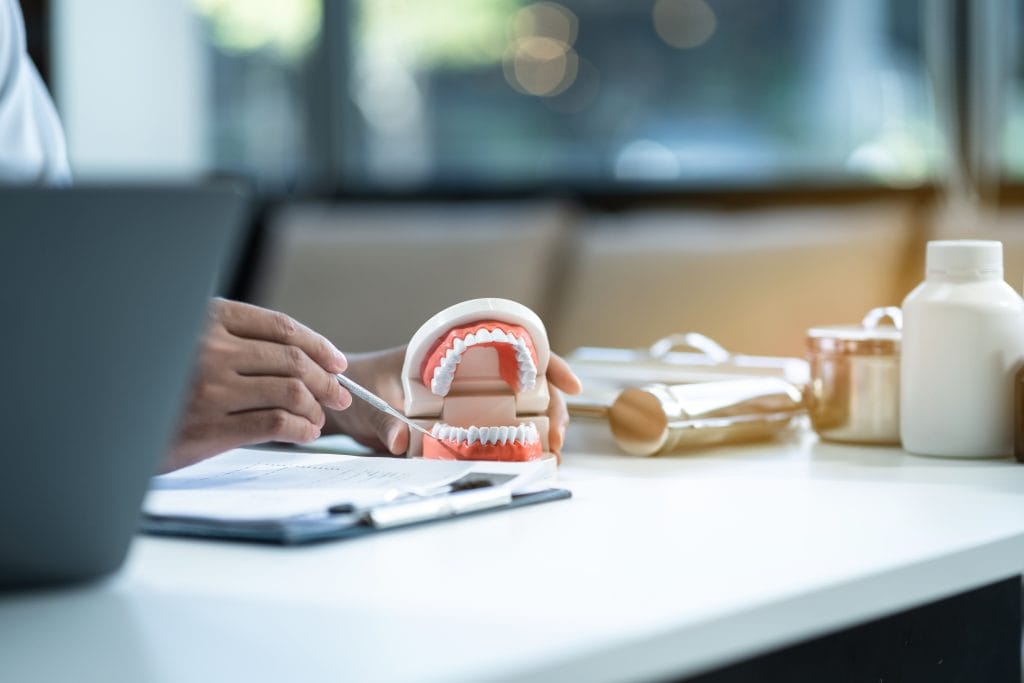Last updated on September 25th, 2018 at 02:59 pm
 Q. I would like to start measuring individual employee productivity by using statistics. Do you have any suggestions on which stats to assign to the various jobs in the office?
Q. I would like to start measuring individual employee productivity by using statistics. Do you have any suggestions on which stats to assign to the various jobs in the office?
Good question. And I want to start my answer with a disclaimer: there’s quite a bit to know about statistic management! On the MGE Power Program a client might spend in excess of 10+ days of training on this subject alone…it’s meaty. Properly done, the stat management system you’d learn on the MGE Program takes the majority of guesswork out of running a business – it’s valuable. And while my answer here may be of assistance, it’s not going to be anywhere near what you should know about the subject!
(Related: Why Your Practice Needs to be Systems Based)
That said, here are a few tips:
1. A statistic needs to measure a RESULT.
As an example, let’s say you have a part-time staff member making reactivation calls. If you’re going to give them a statistic, you’d want to measure the result of their efforts – i.e. how many people ![]() this person scheduled that actually show up! So, if you were only going to assign one stat, you’d give them the number of people who show up as the result of their efforts. If you gave them two stats, you might also track how many people they schedule. And while it might be nice to know how many phone calls they made, it would not be their primary statistic! Why? Well, someone could in theory make thousands of calls and schedule no one! The result you want from reactivation is patients in the chair – not a bunch of calls made.
this person scheduled that actually show up! So, if you were only going to assign one stat, you’d give them the number of people who show up as the result of their efforts. If you gave them two stats, you might also track how many people they schedule. And while it might be nice to know how many phone calls they made, it would not be their primary statistic! Why? Well, someone could in theory make thousands of calls and schedule no one! The result you want from reactivation is patients in the chair – not a bunch of calls made.
(Related: 3 Ways to Improve New Patient Conversion)
2. If a statistic is based on results, then you would assign statistics based on duties of a given position.
This tells you that (ideally) each staff member would be responsible for a specific related series of functions in your office (i.e. someone in charge of the schedule, another person in charge of collections and so on). How many staff you have obviously depends on the size of your practice and in a smaller office it’s not uncommon that an individual wears a number of different “hats.” But if what you have is a bunch of people all doing a little bit of everything, you’ll end up with a number of redundancies and worse – no one ultimately accountable for important aspects of the practice. As an example, if everyone schedules – not one person responsible – who do you talk to when the schedule is empty? That’s why on the MGE Power Program, organization training comes prior to the full statistic management training. Sure, we’ll get new clients going with a few statistic management points, but only when the office is properly organized and functions assigned can you then roll out the full breadth of the statistic management system.
(Related: 4 Tips for Hiring Great Front Office Staff)
3. As far as which stats to assign to which position, here are a few ideas:
- Scheduling Secretary: Percentage of appointments kept. You could also assign overall office production.
- Collections/Financial Secretary: Amount of money collected and Collections Percentage.
- Assistant: Ideally each assistant is assigned to operatory or chair. In that case, you’d give them production per operatory.
- Hygienist: Individual production.
- Associate: Individual production.
- Doctor: Production. Would also keep Treatment Accepted from their Case Presentation “Hat.”
So, there you have it. Again, remember that there is A LOT to learn about this and we’d be more than willing to teach you. Feel free to contact us for help on this subject.
(Related: 5 Ways to Reduce Hygiene Cancellations and No-Shows)
Q. What qualities should I look for when hiring an office manager?
If I were hiring an office manager, I would be looking for four basic qualities:
- Willing to get others to work/tell people what to do.
- A past history of production (even if no dental experience – I’d look for this in any of their prior positions).
- Aptitude (ability to learn fast) and a willingness to learn.
- A positive, friendly attitude.
An extensive dental background wouldn’t be my first priority. Of course, it would be ideal to find someone who has dental experience and the qualities I mentioned above, but that’s not always going to happen.
(Related: What Exactly Is An Office Manager (And Why You Absolutely Need One!))
One other important note: before I’d go looking outside my office, I’d look internally and see if any of my current staff “fit the bill.” The advantages here are obvious: more familiarity with your office, a track record of production that you have personally observed and a promotion for a deserving employee. Some of the most productive office managers we’ve ever trained were in fact already employed by their doctors as an assistant, treatment coordinator, etc. prior to being promoted.

In any event, whether you’re hiring from the outside or not, focus on finding a person who is relatively smart, can learn quickly, is willing to get other people to work and has an amiable disposition. And keep in mind: when you hire someone as your office manager, you can’t expect them to fully function as the “perfect OM” right off the bat. You are essentially hiring an “office manager in-training,” meaning you have to train and apprentice them before turning over all the office manager responsibilities to them.
(Related: Ask Sabri: Integrating a New Associate and Reducing Staff Turnover)
And lastly don’t get fooled by someone with loads of “experience.” To begin with you can’t “see” experience – and for all you know much of that “experience” might be bad! And regardless of the amount of experience, you will still need to train them on how you run your office.
Ultimately, the training on the MGE Power Program will show you how to hire, train and apprentice an office manager (or other positions in the office). This, coupled with the Office Manager Training Package, can produce the executive you’ve always wanted to run your practice! So, the lesson here is: get through your training and get your office manager trained!
Q. Do you have any suggestions on training new staff to get them productive as quickly as possible?
Before you even begin to train your new staff to help them become productive fast, you need to make sure you’ve hired people that are eager, willing and upbeat. They also have to be able to assimilate information and apply it quickly. (At MGE, we can show you how to test for aptitude.)
(Related: Improving Staff Initiative in the Dental Office)
Once you’ve hired the right person for a position, make sure you have the written policies in place for that position. For instance, if you just hired a scheduler, receptionist, financial coordinator, etc. then have them read the written policy or set of policies (preferably in a manual) on how scheduling, answering phones, or finances work in your office, as well as everything else they need to know about your office that pertains to their job.
Don’t just tell them what to do because it will probably go over their heads the first time and they will make unnecessary mistakes. Instead of cramming all of this information in their head, they will have something to refer back to and so will you.
Once your employees have read the written training materials for their position, they need to work directly under someone who can apprentice and correct them as needed until they are confident and able to do the job without guidance. At that point, you can give them a statistic for a product they can be responsible for, whether it is new patients, patients scheduled, the amount of treatment sold, etc., and then run them on that statistic.
I hope this helps! Again, the MGE Power Program is where you’ll learn how to do everything mentioned above. Learn more about it by clicking here, or call us at (800) 640-1140. If you’re not ready to start the MGE Power Program, then I highly recommend signing up for our online training platform, DDS Success.




No Comments
Be the first to start a conversation